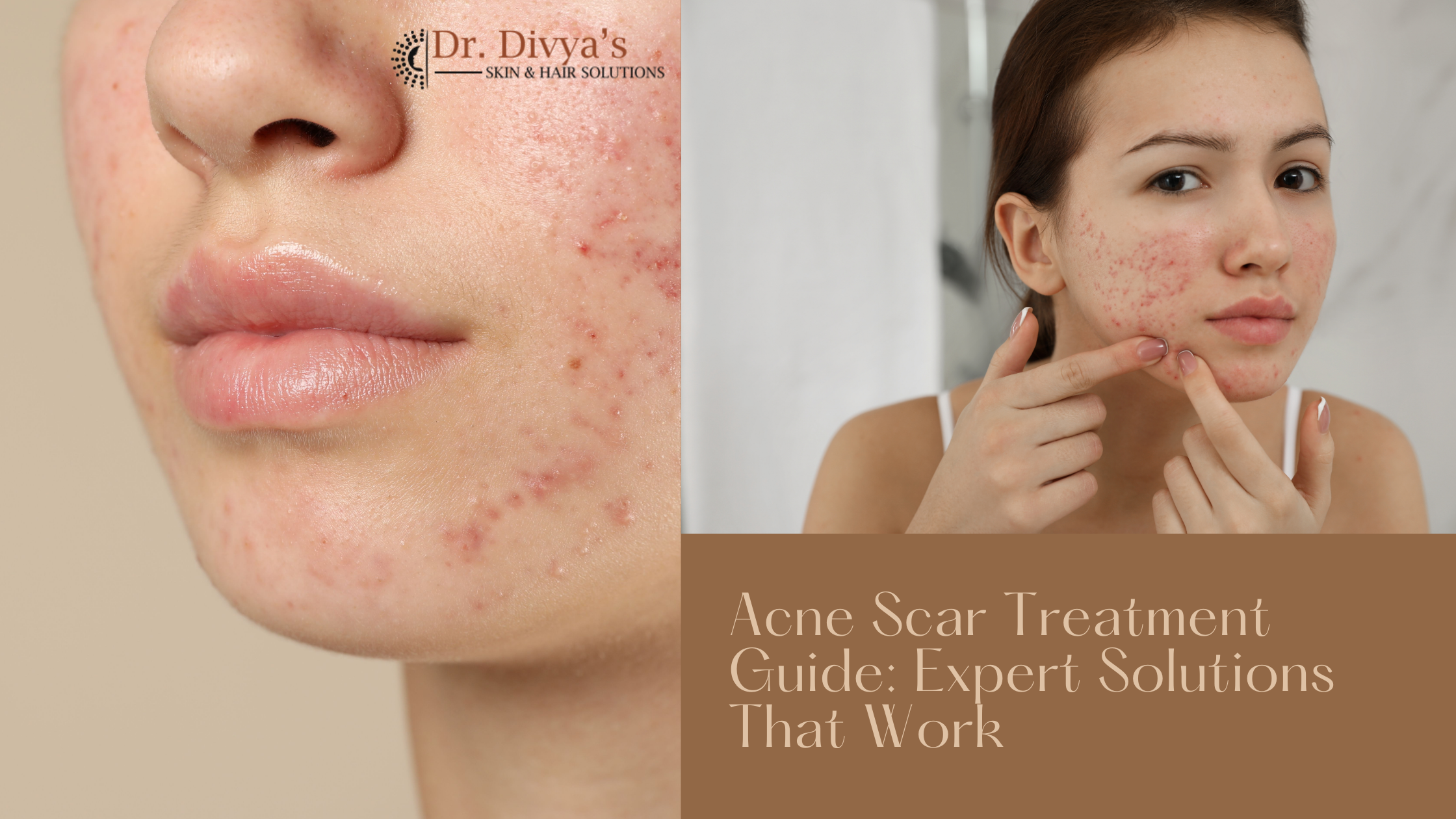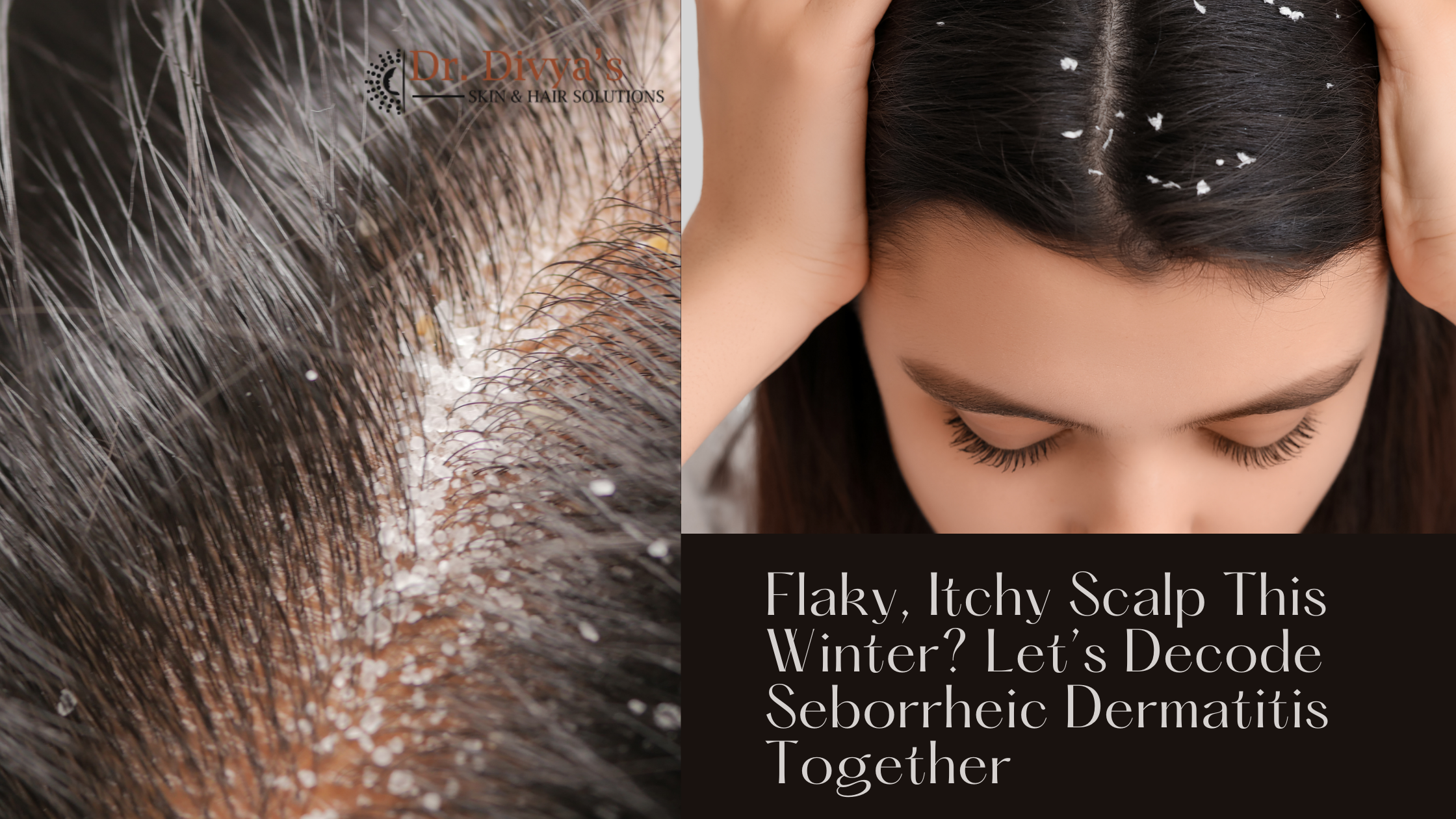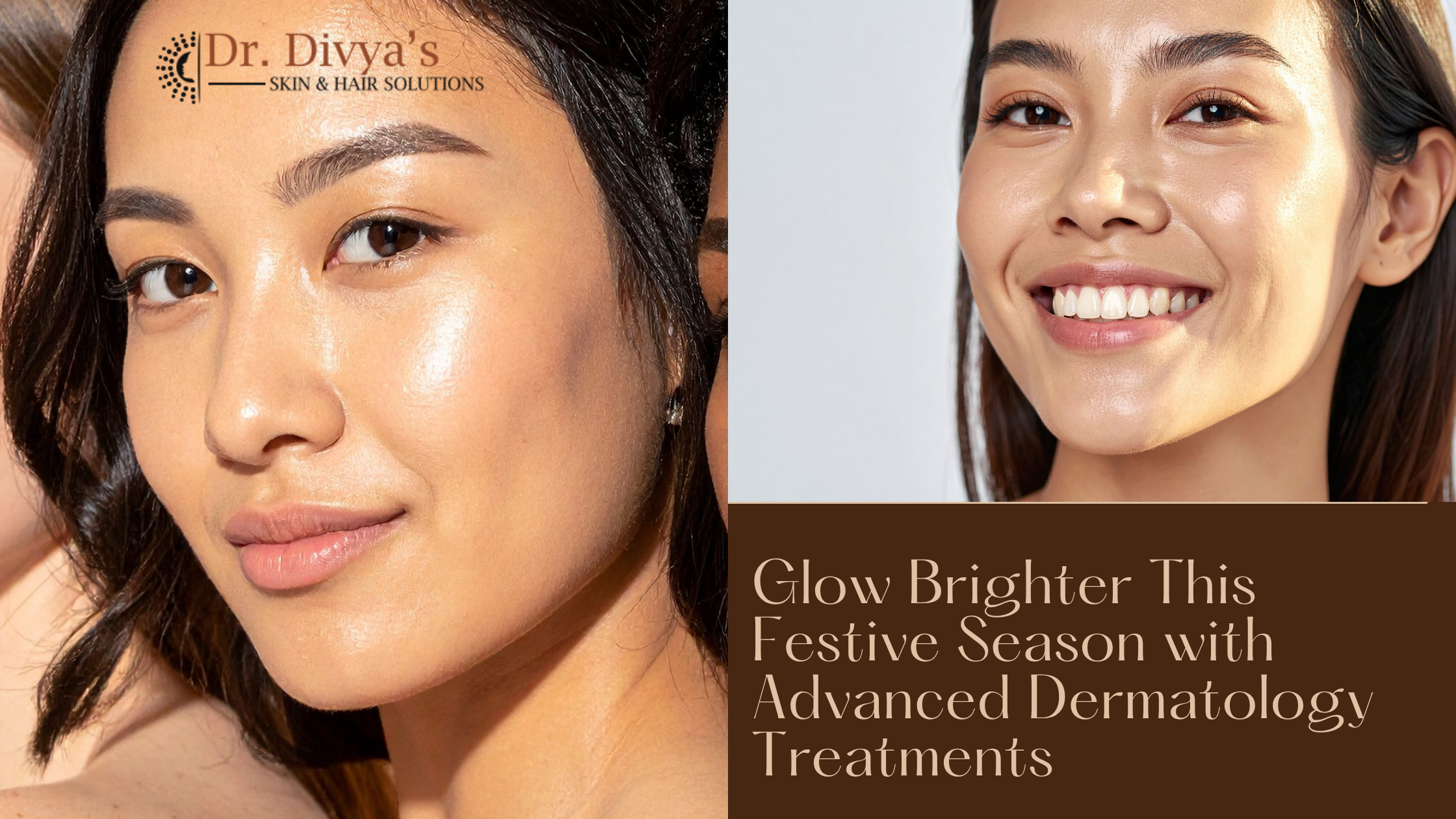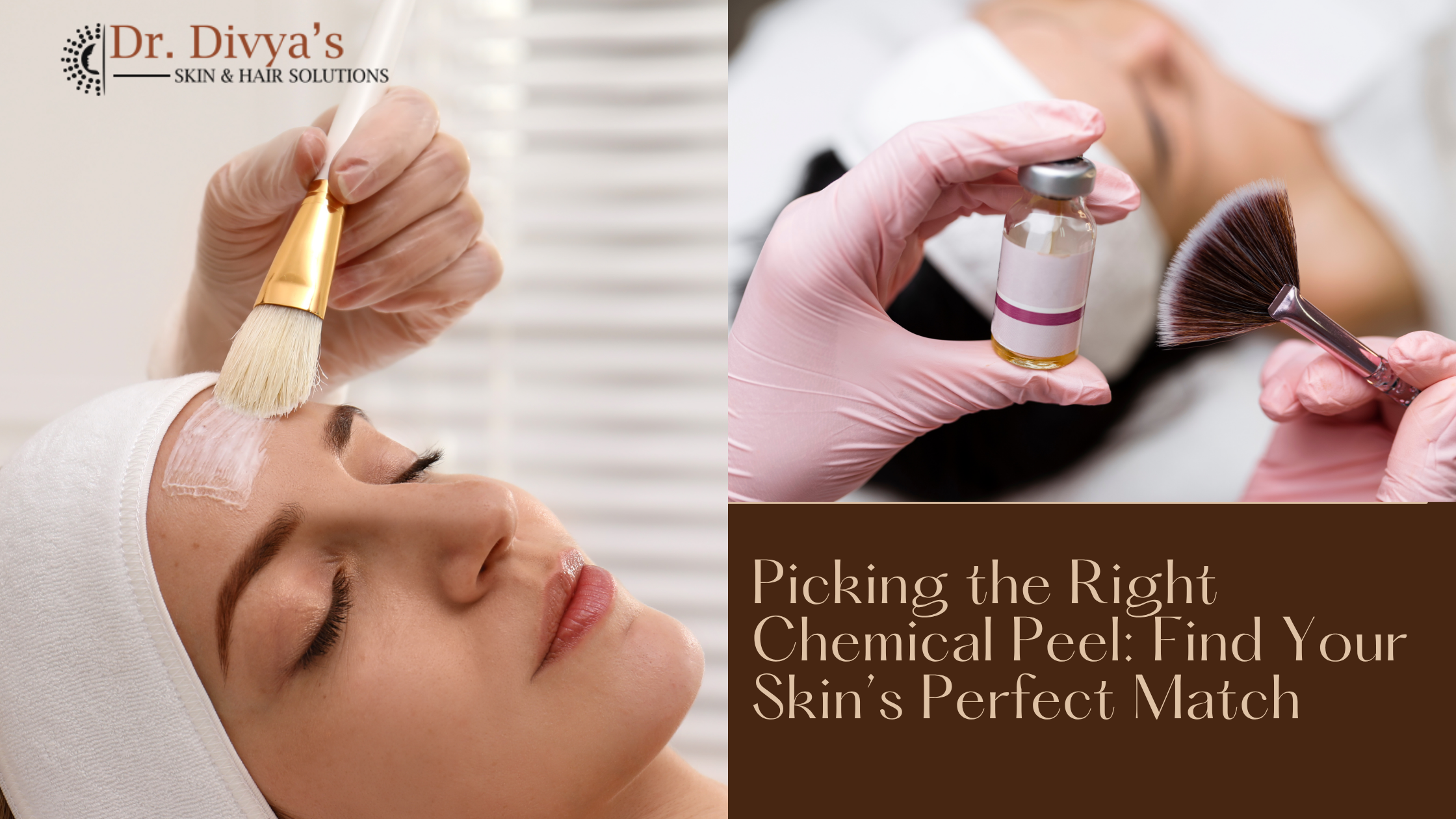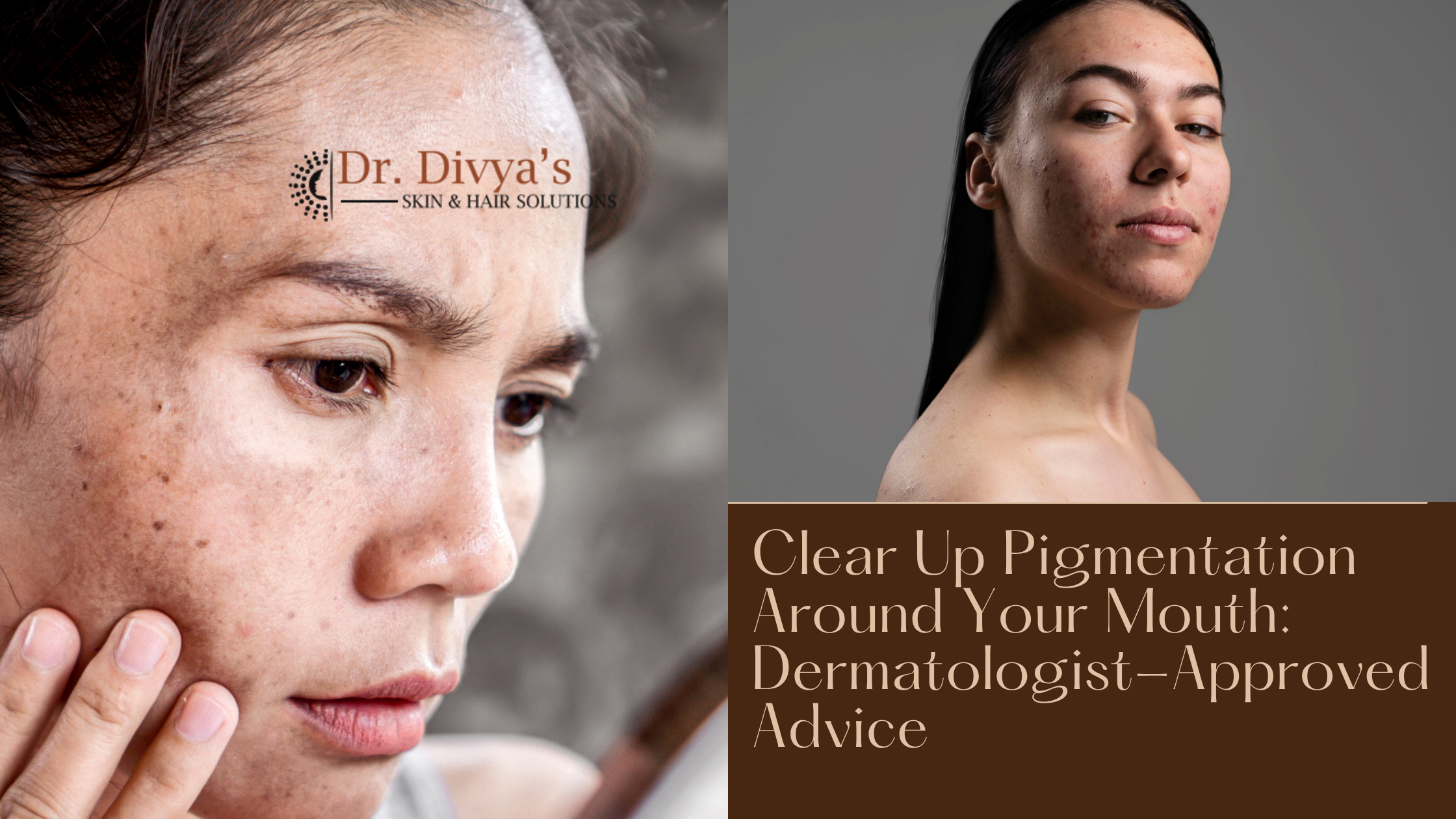Posted date on Sep 05, 2025
Let's be honest-acne scars can be super frustrating. You finally get rid of breakouts, and then you're left with those annoying marks that just won't go away. Sound familiar?
If you've been dealing with acne scars and are unsure where to start with treatment, this guide is for you. Let's break it down together, step by step-no fancy medical jargon, just real info that works.
What Are Acne Scars, Really?
Acne scars are the marks left behind after pimples heal. Not all pimples leave scars, but when they do, it's often because of deep inflammation or picking at the skin (yep, we've all done it).
There are different types:
Understanding the type of scar you have helps in choosing the right treatment.
Dark spots (not true scars, but pigmentation that fades with time)
Indented scars (like ice pick, boxcar, or rolling scars)
Raised scars (thick, bumpy ones, more common in darker skin tones)
Why Do Acne Scars Happen?
Our skin is smart-it tries to heal itself when damaged. But sometimes, during that healing process, it either makes too much tissue (causing raised scars) or loses tissue (causing indents or pits).
Picking at acne, using harsh products, or not treating breakouts early can all increase the chance of scarring. That's why prevention matters just as much as treatment.
What Actually Works? (Real Treatments That Help)
Here are the most recommended acne scar treatments that dermatologists swear by:
1. Chemical Peels
These are solutions applied to your skin that remove the top layer. Great for mild scarring and dark spots
2. Microneedling
Tiny needles create small injuries to encourage collagen production. Over time, this can smooth out indented scars.
3. Laser Treatments
Lasers remove damaged skin layers or stimulate collagen. Effective, but can be pricey and may need downtime.
4. Dermal Fillers
Used for deep scars-they “fill in” the indents for a smoother look. Results are often temporary but immediate.
5. Topical Products
Retinoids, vitamin C, and ingredients like niacinamide can fade dark spots and improve texture over time.
Pro tip: Always consult a dermatologist before jumping into treatments-especially the more intense ones.
Common Mistakes to Avoid
A lot of people delay scar treatment or try the wrong things. Here are a few common mistakes:
- Picking at acne or scabs - makes scarring worse
- Skipping sunscreen - scars darken with sun exposure
- Using too many strong products at once - can irritate and damage skin
- Expecting overnight results - scar treatment takes time and patience
Simple Tips for Better Results
Be consistent with your routine
- Hydrate and moisturize your skin-dry skin can make scars look worse
- Use sunscreen daily-even indoors
- Start slow with new treatments to avoid irritation
- Track your progress with photos instead of checking every day
Conclusion
Acne scars might feel like they'll last forever-but the truth is, they can be treated. With the right plan and a little patience, your skin can look smoother and healthier. You don't need to try every new product on the market. Start with understanding your scars, and go from there.
So here's something to think about: Are you treating your acne scars based on your skin's needs-or just trying random fixes from the internet?
Struggling with acne scars or hair issues?
Get expert care from Dr. Divya Sharma, leading dermatologist in Bangalore.
Trusted by thousands for personalized skin and hair treatments. Book your consultation today!
frequently asked questions (FAQs)
1. Can acne scars go away on their own?
Some mild scars-especially dark spots or discoloration-can fade over time on their own. But deeper scars (like indents or raised scars) usually need some form of treatment to improve their appearance.
2. What's the best treatment for acne scars?
There's no one-size-fits-all solution. The best treatment depends on your scar type, skin tone, and budget. For example:
- Dark spots: Try vitamin C or chemical peels
- Indented scars: Microneedling or laser
- Raised scars: Steroid injections or laser treatments
- It's best to talk to a dermatologist to figure out what's right for you.
3. How long does it take to see results from treatment?
It depends on the treatment.
- Topical products: 6-12 weeks or more
- Microneedling: noticeable improvement after 3-6 sessions
- Laser: results can be seen in a few sessions but may take months to fully heal
- Being patient-scar healing is a slow process.
4. Can home remedies treat acne scars?
No home remedies are unlikely to help with scars. Stick with dermatologist-approved treatments for real results.
5. Do acne scar treatments hurt?
Some treatments can cause mild discomfort (like microneedling or lasers), but most are manageable. Your doctor may use numbing cream or local anesthesia to reduce pain. Topical treatments are usually painless but can cause irritation if overused.
